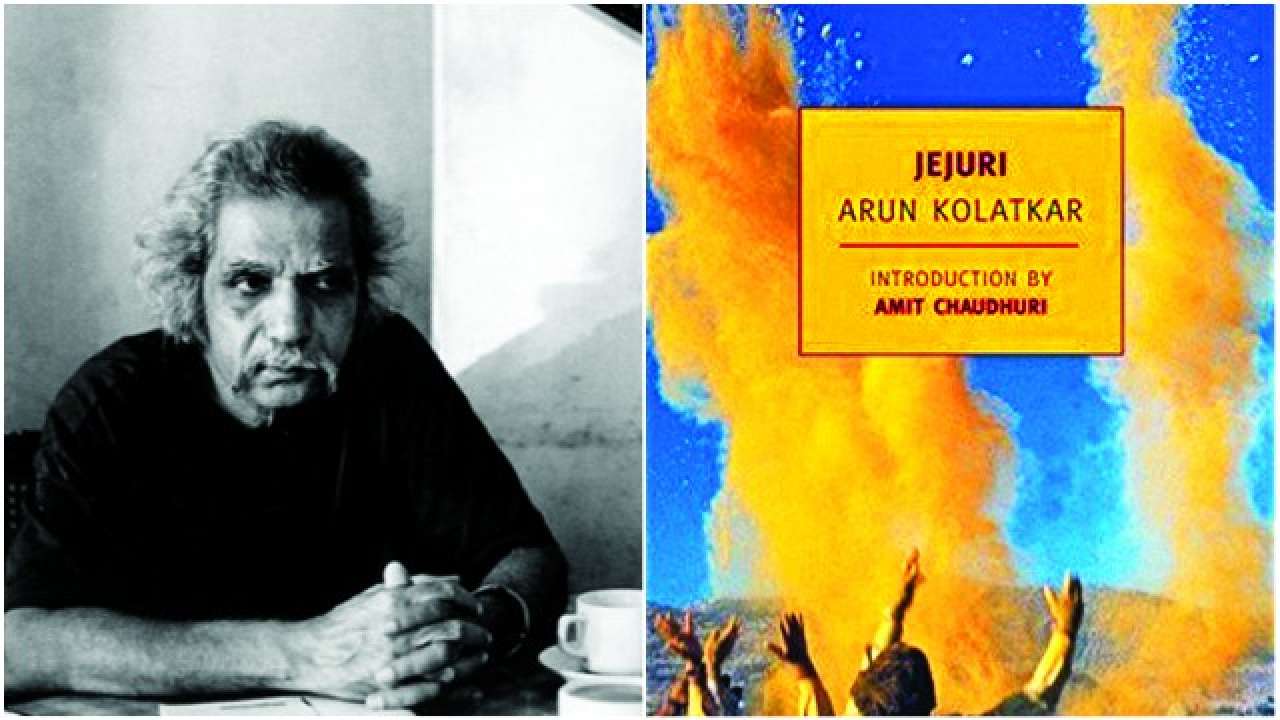
The other day as I was walking down the road, I saw a part of the pavement fenced in to safeguard an electric transformer. Predictably, it had been turned into a rubbish dump by worthy citizens. As I walked past the mess, a sudden flutter caught my eye — a little yellow butterfly, hovering above a tiny flower on a teetering weed. A triumphant flash through the toxi‘city’.
I remembered another butterfly. Long ago, on a bus trip through a hostile hillscape, a poet had seen a little yellow butterfly, “just a pinch of yellow” which had “taken these wretched hills/ under its wings… it opens before it closes/and closes before it o/where is it”
Last month, Arun Kolatkar’s The Butterfly floated on subway trains in London, featured in the city’s “Poems on the Underground” series in its autumn posters. This poem is part of Kolatkar’s Jejuri anthology of 31 poems published in 1976, winner of the Commonwealth Poetry Prize in 1977, and later declared a world heritage work by the New York Review of Books. But Arun Kolatkar (1935-2004) remains a poet’s poet, overshadowed by contemporaries more well known.
He has been introduced and reviewed less by critics, and more by writers — say, an Arvind Krishna Mehrotra, Dilip Chitre, Amit Chaudhuri, or filmmaker Arun Khopkar; he shunned the press. If some celebrity like Salman Rushdie wanted to meet him he stipulated that the visit should be unpublicised. This bilingual poet writing in Marathi and English had to be coaxed to publish his work. More significant works have been appearing posthumously.
No, they are not available in mainstream bookshops. You have to make an effort to access them.
I think the reclusive poet would have liked this. After all, Kolatkar had abandoned the limelight when he gave up a successful career in advertising, with his name in the Hall of Fame in the commercial artists’ guild. A colleague records, “He never came to corporate events, not even to collect awards.” A magazine editor recalls that when they met to discuss design, the poet said hello, and sat in silence, chewing a wad of tobacco. When a journalist asked him “Who’s your favourite poet?” he drowned the questioner in a Niagara of names.
His death made no headlines. But I believed that whether the world knew it or not, the death of a poet impoverishes all of us. I asked myself: Why should an artist turn into a recluse, reluctant to share his work with others? Did Kolatkar hate the world? I also wondered why he was described as a poet who adopted all the features of the bhakti tradition, but was devoid of devotion.
Writing Dark Horse, my first play, with the enigmatic Kolatkar as protagonist, became a search for answers. It was easy to see his irreverence — “What is god/and what is stone/ the dividing line/if it exists/is very thin…/ and every other stone/ is god or his cousin”; his rage at oppressors — “once the earth goes bust,/what speck of dust/ do you intend to rule on, Mr King?; his dry-eyed empathy for the waifs and vagabonds on the streets — a Meera with a broomstick, fruit vendor, rat poison man, pinwheel boy, pimp, junkie. He could mythicise the urban metropolis into a macro saga (Kala Ghoda Poems). He could also contemporise a Mahabharata horror myth with micro details (Sarpa Satra). He could translate Tukaram and also swing into rock rhythms (The Boatride). And who can match the wacky wit of The Policeman, a wordless play of parabolic visuals?
Kolatkar disdained the tag of ‘bhakti’ applied to his work, even when he wrote about a pilgrimage. But he knew his miracle, he had his epiphany. Encountering a mongrel with her pariah puppies in a ruined temple, he calls it “nothing less than the house of god.” He struggled to convey that sense of the sacred, even as he admitted to having “No new ideas./A lot of old ones served with a sizzle/ with plenty of spice to mask the rotten smell.”
I read The Butterfly again. Pun and aphorism? Yes, but it is also the affirmation of a life principle that is primaeval, omnipresent, and yet fleeting, fragile, waiting for us to nourish it with conviction. To read Kolatkar is to recognise that writing can be an act of confronting lies, lancing hypocrisies, combating intolerance. In both form and content, his ‘bhakti’ is a rigorous process of cleansing, of discarding the dross. What is left at the core can be disturbing, but it can also be illuminating, and it can even be beautiful.
The author is a playwright, theatre director, musician and journalist